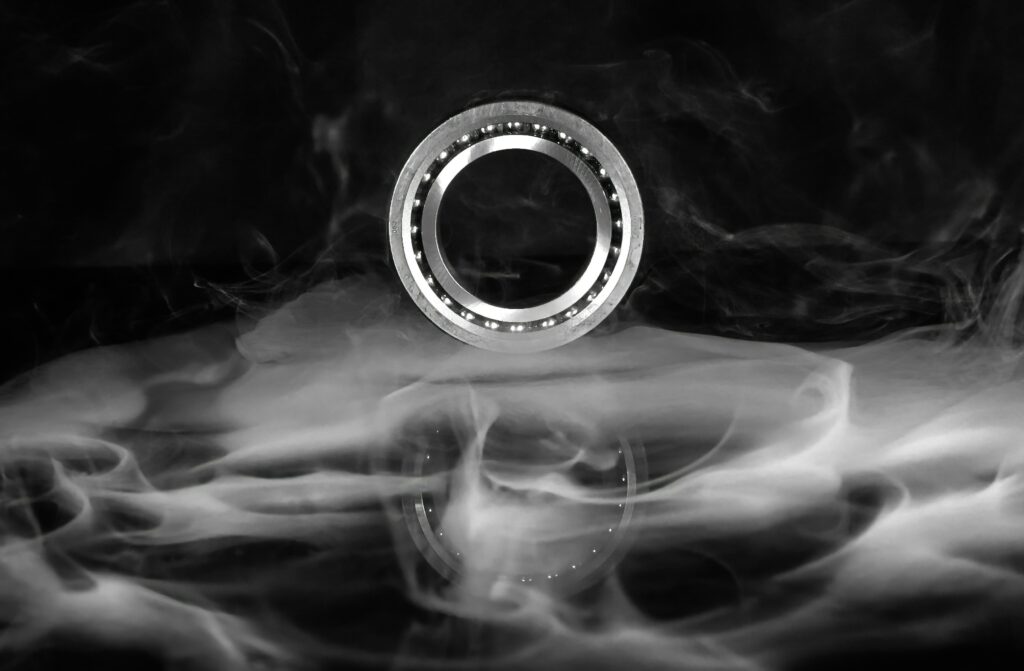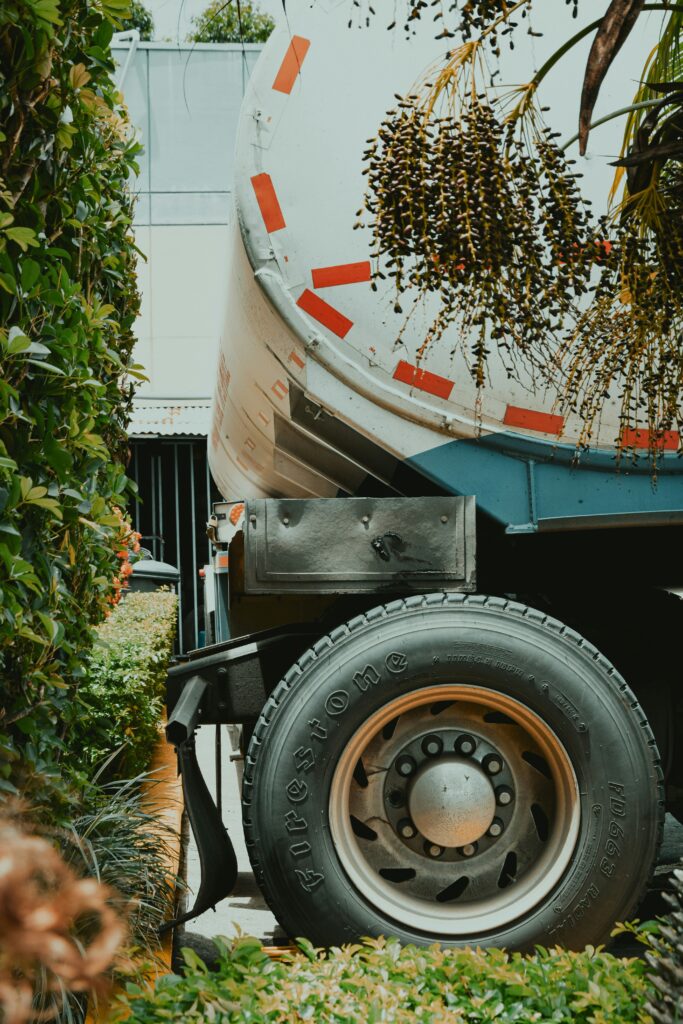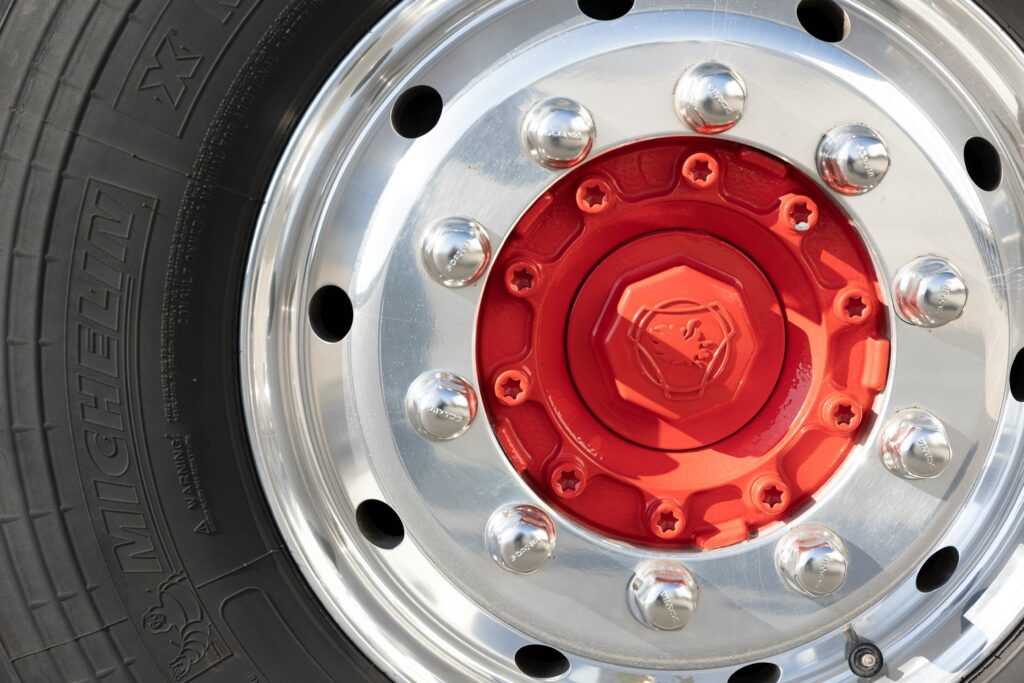
Wheel bearings play an important role in keeping your HGV safe and out on the road. They are important components of a vehicle’s braking, steering and suspension systems. The one-piece hub assembly is located between the brake disc or drums and the drive axle incorporates the hub, wheel bearings, ABS wheel speed sensor, and mourning flange. It’s the component that allows a wheel to turn.
The bearings are tightly packed into a waterproof and grease-filled, sealed metal ring known as a race. This is located inside the hub, and each wheel has one. Wheel bearings have to support the entire weight of the vehicle and are engineered to do just that.
How often do HGV wheel bearings need replacing?
Wheel bearings are engineered to last the entire lifespan of your vehicle, but they can wear out and ultimately fail. In theory, most wheel bearings should last around 85,000 to 100,000 miles before they need replacing. In reality, that’s often not the case. While in some cases, wheel bearings may even last longer, due to the amount of stress they are under on a daily basis they can and do wear out well before they’ve reached 85,000 miles.
Because of their location and the amount of weight they have to bear, wheel bearings need to be able to put up with a lot of punishment. Harsh driving and weather conditions, potholes, rain, grit, and debris can all create an extra strain that reduces their lifespan.
The quality of the wheel bearings that are fitted will make a difference, as too will your usual driving conditions. In the UK, where rain and bad weather frequently make for poor driving conditions, wheel bearings are under extra strain on a regular basis. If you drive in a rural area, perhaps on roads in relatively poor conditions, this too will reduce the service of your wheel bearings.
For these reasons, it’s crucially important that HGV drivers, owners and operators keep checking on the state of the wheel bearings on their vehicles. If they fail the consequences can be dramatic and should always be avoided.
Working wheel bearings are an essential part of HGV safety, so you should keep check for any symptoms of failure rather than relying on a timeline and mileage completed.
Can you drive with bad wheel bearings?
You should never drive any kind of vehicle without properly functioning wheel bearings. This is not only extremely dangerous for the driver, but it can also end up injuring or even killing other road users. If you ignore bad wheel bearings, your wheel might completely stop working, or you could face serious challenges when it comes to steering your HGV. Needless to say, both of these circumstances can be highly dangerous.
As well as the immediate danger, bad wheel bearings put a strain on other parts of your vehicle such as the hub, stub axle, halfshaft, and transmission. Falling to repair wheel bearings that are long past their best can quickly create more costly problems. When wheel bearings are failing, tyres can also wear out faster, something that can be costly when it comes to repairs.
If you suspect your wheel bearings are wearing out, they should be investigated immediately, and replacement bearings fitted if necessary.
What are the signs that wheel bearings need to be replaced?
There are a number of warning signs that can indicate that your wheel bearings are beginning to fail. If you suspect your wheel bearings are starting to fail this should be investigated as quickly as possible.
If you notice any of these signs, you could need a wheel bearing replacement:
Strange Noises
As an HGV driver, owner, or operator, you need to be aware of what noises your vehicle is making, what’s normal and what isn’t. Bad wheel bearings cans create a variety of strange noises all of which indicate that something is starting to fail.
Humming, squealing, clicking, snapping, clunking, rattling, and knocking noises are all common if your HGV wheel bearing is bad. You may hear these noises when you accelerate, shift gears, or turn. They can also indicate a variety of other problems, so it’s important to have them checked as soon as possible.
Vibration
If you feel that your vehicle is vibrating when you change speed or are turning, this might indicate that you need to replace your wheel bearings.
Grinding
Grinding means that there could already be severe mechanical damage in your wheel’s system. If you notice this while you are shifting gears or when you turn your vehicle there is a good chance that wheel bearings may be the cause.
Pulling When Braking
If a vehicle pulls to one side when pressure is being applied to the brakes this indicates that something is wrong. It can signify a number of different issues but failing wheel bearings is one of the potential problems.
Uneven Brake Pad or Brake Disc Wear
While this may be indicative of a bad caliper or a bad equaliser, it can also indicate that your wheel bearings need attention. Looseness related to a damaged or worn bearing can in some circumstances causes excessive runout. This can cause uneven wear on the brake pads or brake disc.
Abnormal & Uneven Tyre Wear
Although abnormal tyre wear can have lots of different causes, such as damaged suspension components, misalignment, or improper inflation, extreme bearing wear and looseness can be one of them.
ABS Failure
ABS is a key safety feature of your vehicle so any issues with them can be dangerous and require immediate attention. ABS failure or problems with your ABS can be a sign that wheel bearings are failing.
Where can you get replacement wheel bearings?
CV Hubs are the leading experts in HGV wheel hubs and bearings. Our extensive range of high-quality hubs and bearings makes it easy to find the replacement part you need quickly.
With support from OEM suppliers, our experienced and dedicated technicians can have your HGV wheel hubs and bearings repaired or replaced as quickly as possible. We aim to ensure that any disruption to your business is minimised, getting your vehicle back on the road as quickly as we can.
Don’t delay getting your wheel bearings checked out. Call +44 (0) 161 370 3344 or contact us online to find out more about services.
Back to news


